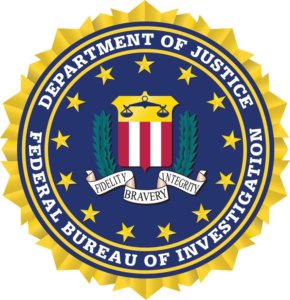FBI and CISA Publish a PSA on Malicious Cyber Activity Against Election Infrastructure
October 05, 2022 — The Federal Bureau of Investigation (FBI) and CISA have published a joint public service announcement that:
- Assesses malicious cyber activity aiming to compromise election infrastructure is unlikely to result in large-scale disruptions or prevent voting.
- Confirms “the FBI and CISA have no reporting to suggest cyber activity has ever prevented a registered voter from casting a ballot, compromised the integrity of any ballots cast, or affected the accuracy of voter registration information.”
The PSA also describes the extensive safeguards in place to protect election infrastructure and includes recommendations for protecting against election-related cyber threats.
Malicious Cyber Activity Against Election Infrastructure Unlikely to Disrupt or Prevent Voting
 The Federal Bureau of Investigation (FBI) and the Cybersecurity and Infrastructure Security Agency (CISA) assess that any attempts by cyber actors to compromise election infrastructure are unlikely to result in large- scale disruptions or prevent voting. As of the date of this report, the FBI and CISA have no reporting to suggest cyber activity has ever prevented a registered voter from casting a ballot, compromised the integrity of any ballots cast, or affected the accuracy of voter registration information. Any attempts tracked by FBI and CISA have remained localized and were blocked or successfully mitigated with minimal or no disruption to election processes.
The Federal Bureau of Investigation (FBI) and the Cybersecurity and Infrastructure Security Agency (CISA) assess that any attempts by cyber actors to compromise election infrastructure are unlikely to result in large- scale disruptions or prevent voting. As of the date of this report, the FBI and CISA have no reporting to suggest cyber activity has ever prevented a registered voter from casting a ballot, compromised the integrity of any ballots cast, or affected the accuracy of voter registration information. Any attempts tracked by FBI and CISA have remained localized and were blocked or successfully mitigated with minimal or no disruption to election processes.
 The public should be aware that election officials use a variety of technological, physical, and procedural controls to mitigate the likelihood of malicious cyber activity (e.g., phishing, ransomware, denial of service, or domain spoofing) affecting the confidentiality, integrity, or availability of election infrastructure systems or data that would alter votes or otherwise disrupt or prevent voting. These include failsafe measures, such as provisional ballots and backup pollbooks, and safeguards that protect against voting malfunctions (e.g., logic and accuracy testing, chain of custody procedures, paper ballots, and post-election audits). Given the extensive safeguards in place and distributed nature of election infrastructure, the FBI and CISA continue to assess that attempts to manipulate votes at scale would be difficult to conduct undetected.
The public should be aware that election officials use a variety of technological, physical, and procedural controls to mitigate the likelihood of malicious cyber activity (e.g., phishing, ransomware, denial of service, or domain spoofing) affecting the confidentiality, integrity, or availability of election infrastructure systems or data that would alter votes or otherwise disrupt or prevent voting. These include failsafe measures, such as provisional ballots and backup pollbooks, and safeguards that protect against voting malfunctions (e.g., logic and accuracy testing, chain of custody procedures, paper ballots, and post-election audits). Given the extensive safeguards in place and distributed nature of election infrastructure, the FBI and CISA continue to assess that attempts to manipulate votes at scale would be difficult to conduct undetected.
Election systems that house voter registration information or manage non- voting election processes continue to be a target of interest for malicious threat actors. Cyber actors may also seek to spread or amplify false or exaggerated claims of cybersecurity compromises to election infrastructure; however, these attempts would not prevent voting or the accurate reporting of results.a
The FBI and CISA will continue to quickly respond to any potential threats, provide recommendations to harden election infrastructure, notify stakeholders of threats and intrusion activity, and impose risks and consequences on cyber actors seeking to threaten U.S. elections.
Recommendations
- For information about registering to vote, polling locations, voting by mail, provisional ballot process, and final election results, rely on state and local government election officials.
- Remain alert to election-related schemes which may attempt to impede election administration.
- Be wary of emails or phone calls from unfamiliar email addresses or phone numbers that make suspicious claims about the elections process or of social media posts that appear to spread inconsistent information about election-related incidents or results.
- Do not communicate with unsolicited email senders, open attachments from unknown individuals, or provide personal information via email without confirming the requester’s identity. Be aware that many emails requesting your personal information often appear to be legitimate.
- Verify through multiple, reliable sources any reports about compromises of voter information or voting systems, and consider searching for other reliable sources before sharing such information via social media or other avenues.
- Be cautious with websites not affiliated with local or state government that solicit voting information, like voter registration information. Websites that end in “.gov” or websites you know are affiliated with your state or local election office are usually trustworthy. Be sure to know what your state and local elections office websites are in advance to avoid inadvertently providing your information to nefarious websites or actors.
- Report potential crimes—such as cyber targeting of voting systems—to your local FBI Field Office.
- Report cyber-related incidents on election infrastructure to your local election officials and CISA ([email protected]).